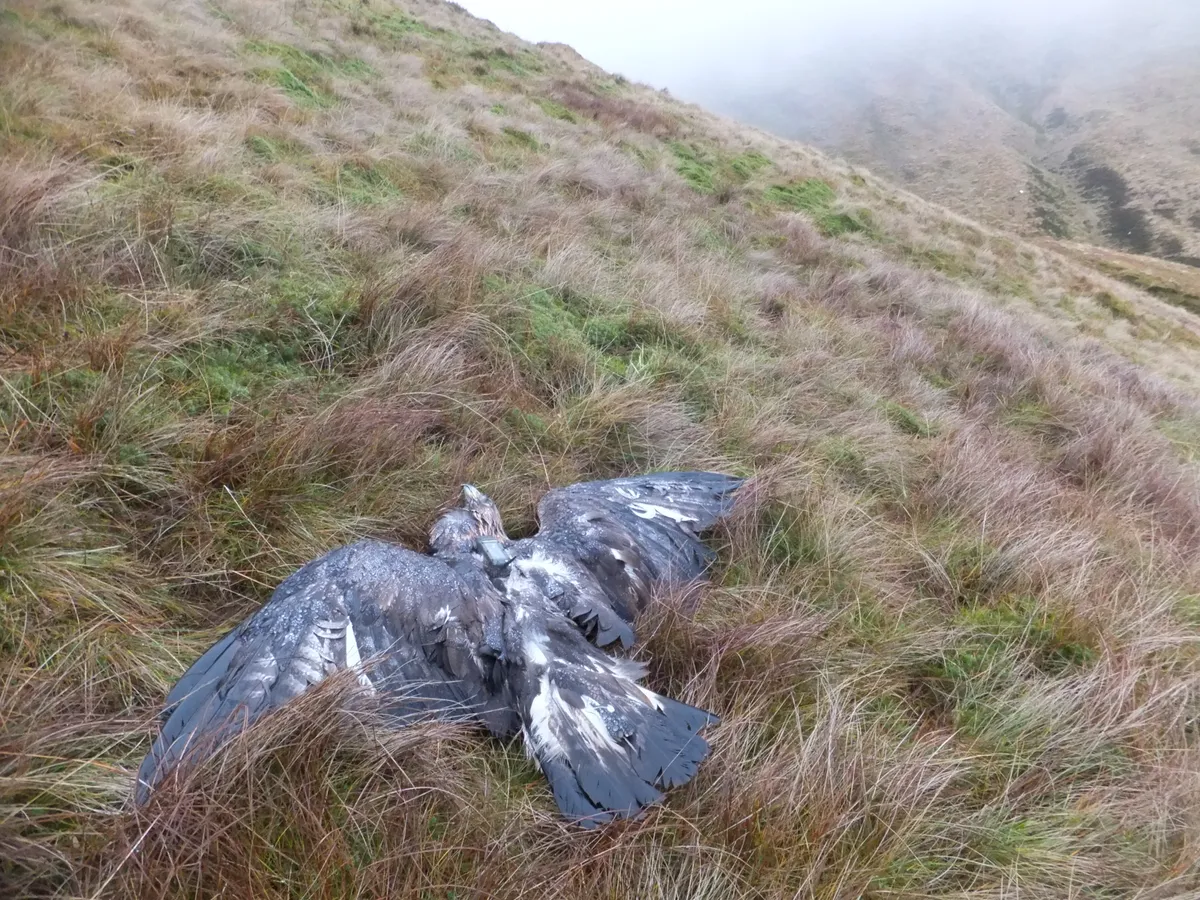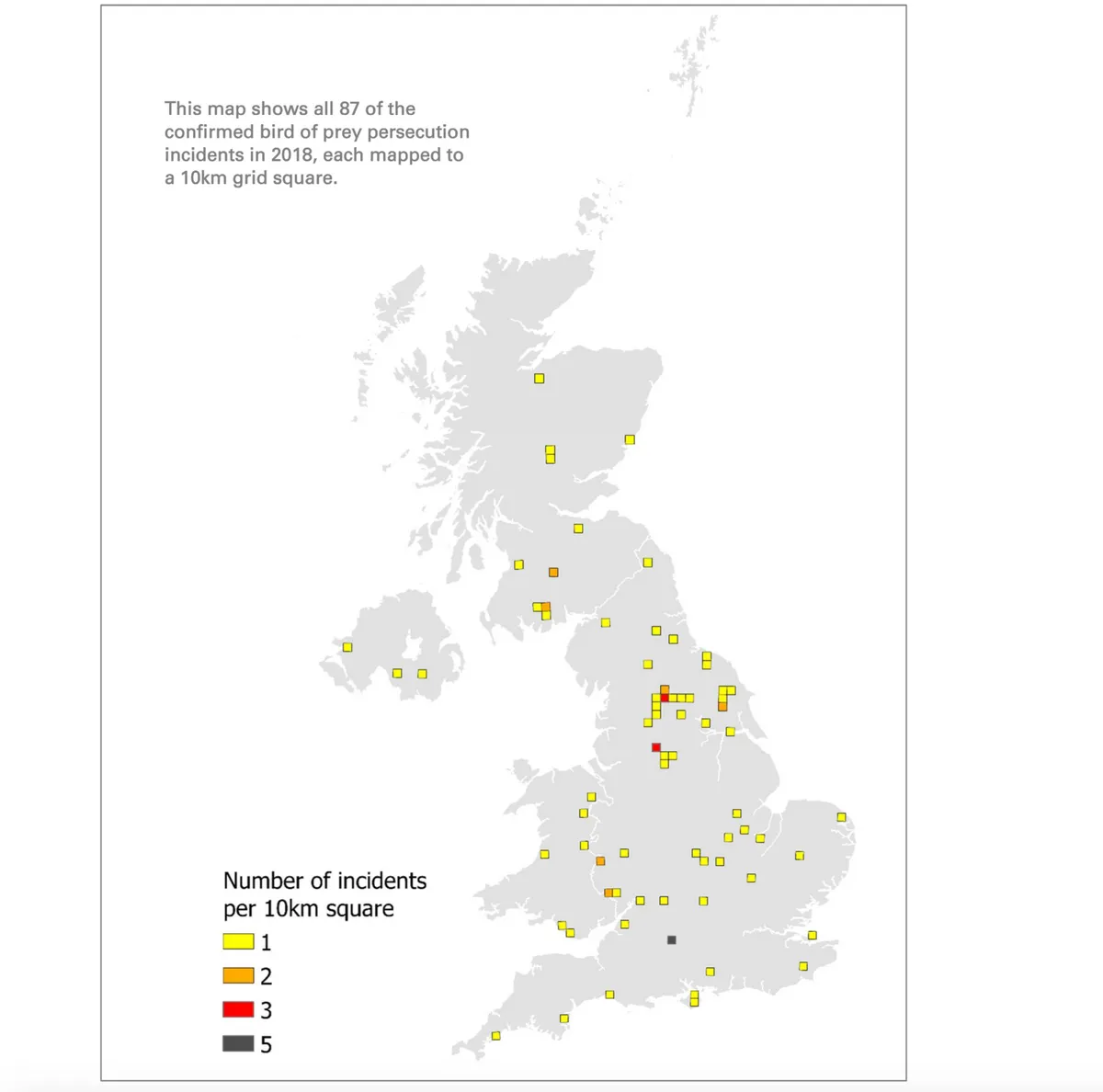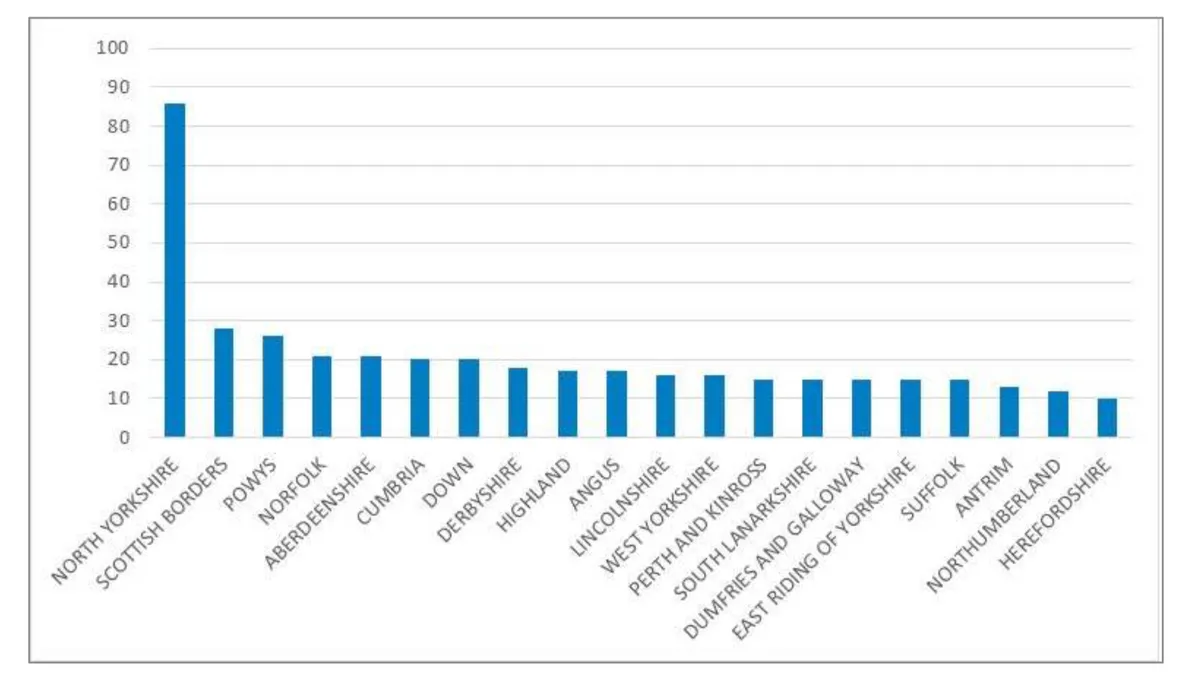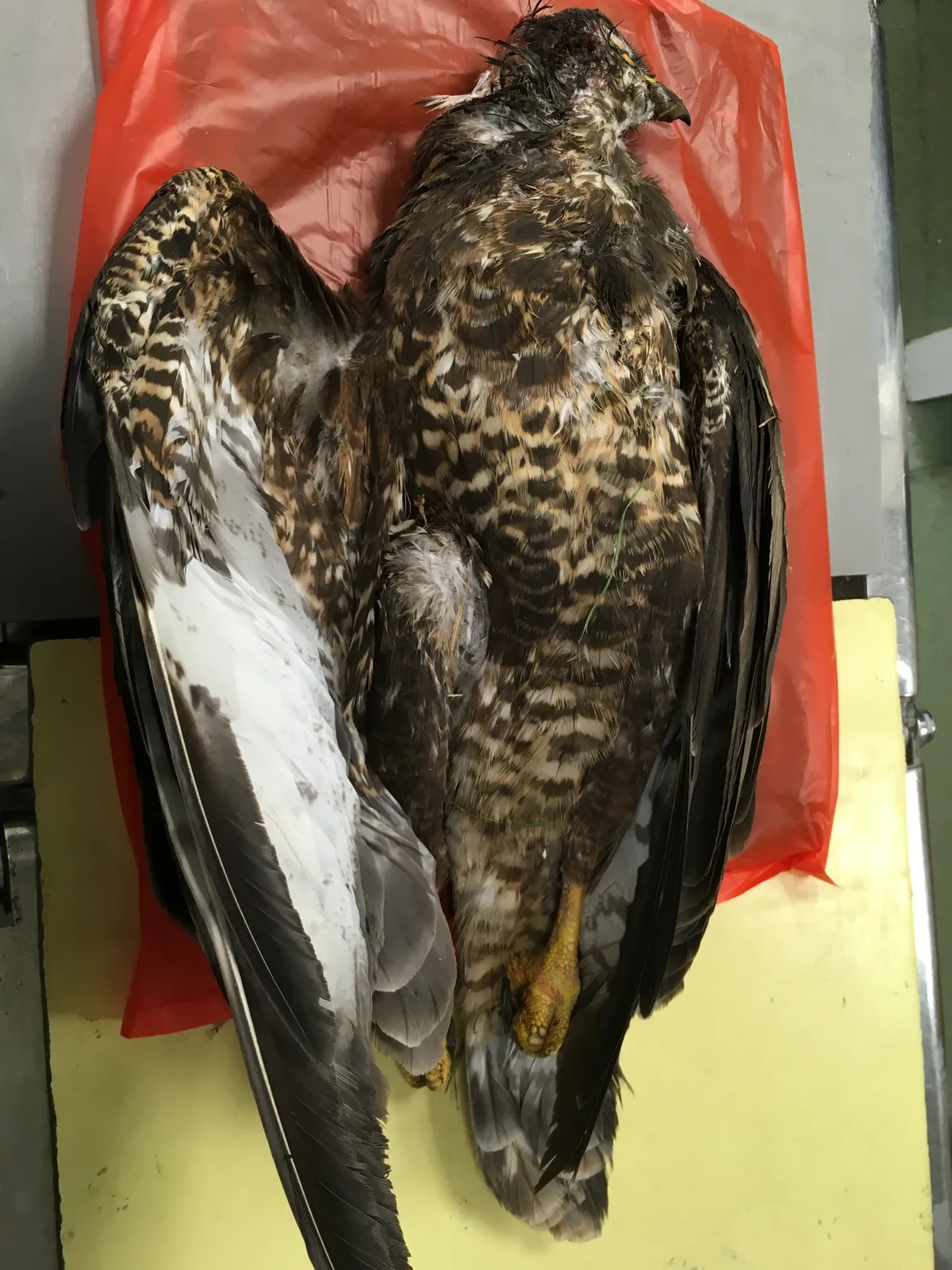All birds of prey are legally protected in the UK under the Wildlife and Countryside Act 1981, but following the publication of the Birdcrime 2018 report, the RSPB says that in some areas of the country, these laws are being widely ignored.
In 2018, there were 87 confirmed incidents of birds of prey being illegally persecuted, including 31 buzzards, 27 red kites, six peregrine falcons, eight owls (tawny and barn) and four hen harriers.
There were 16 bird crime prosecutions in 2018, involving 69 charges. Two of the prosecutions were related to bird of prey persecution. One was discontinued after RSPB covert footage was ruled inadmissible and the other, from a 2017 investigation, resulted in the conviction of a gamekeeper.
“The illegal and widespread killing of birds of prey has gone on for too long,” says Mark Thomas, head of investigations UK at the RSPB.
“Current legislation and sentences are proving woefully inadequate and offering absolutely no deterrent to those who want to see birds of prey eradicated from our hills.”

The majority of the confirmed incidents took place in England, followed by 12 in Scotland, five in Wales and three in Northern Ireland.

The 87 incidents consisted of 41 shootings, 28 poisonings, 16 trappings and 2 other.
The Peak District, North Yorkshire and southern Scotland were identified as illegal persecution blackspots, with most of the incidents recorded in upland areas managed for driven grouse shooting.

The RSPB believes that the driven grouse shooting industry needs to be reformed and is waiting on the outcome of a review in Scotland on how grouse moors can be sustainably managed, and is seeking a review for England.
“The driven grouse shooting industry has, despite decades of warnings, failed to put its house in order - most shockingly turning a blind eye to the ongoing illegal persecution of birds of prey,” says Martin Harper, conservation director at the RSPB.
“Given we face a climate and ecological emergency, we believe it is time for governments to intervene. A first step should be, as is happening in Scotland, independent reviews of driven grouse shooting for the rest of the UK. Ultimately, the RSPB believes that change will only come through regulation.”

“The Game and Wildlife Conservation Trust (GWCT) condemns crime against wildlife and we are committed to finding an effective and practical resolution to the conflict between red grouse and raptors," says Bruce Russell, GWCT's Scotland director.
"Our work with the Langholm Moor Demonstration Project and Scotland’s Moorland Forum’s Understanding Predation project are testament to this intent. We believe that traditional moorland management can, and should, be married to new approaches and techniques such as diversionary feeding and brood management to support more birds of prey, leading to a more even distribution across suitable moorland habitat.”
Main image: Short-eared owl found shot in the Peak District that had to be put to sleep. © RSPB

